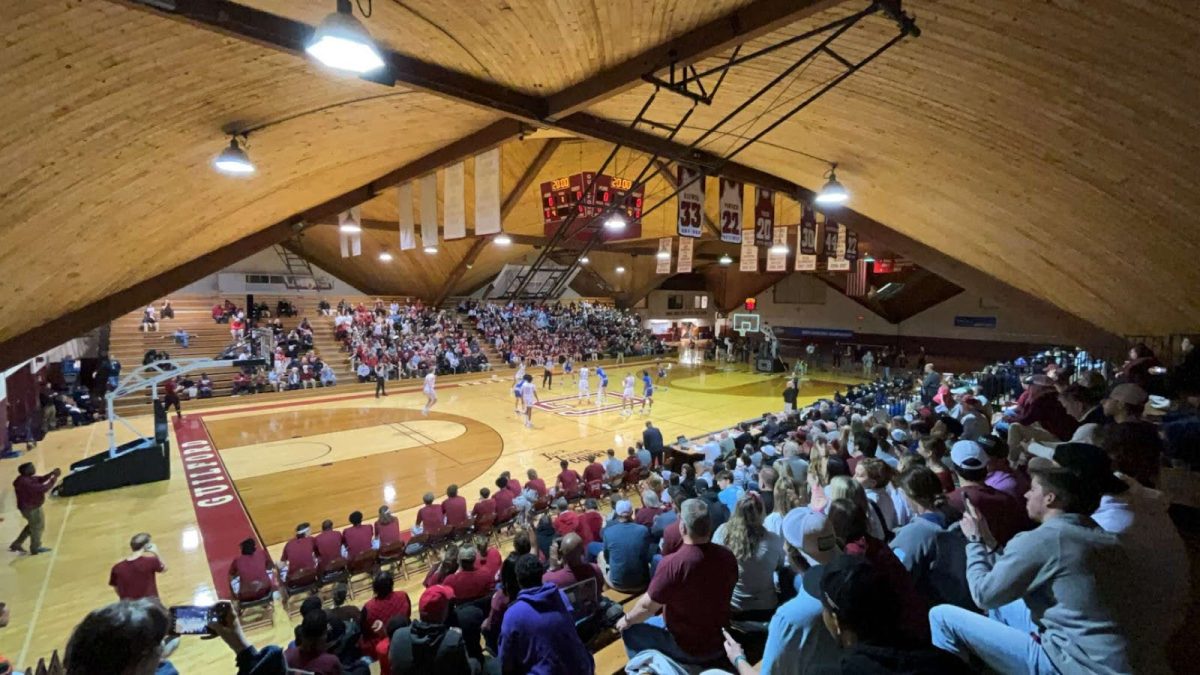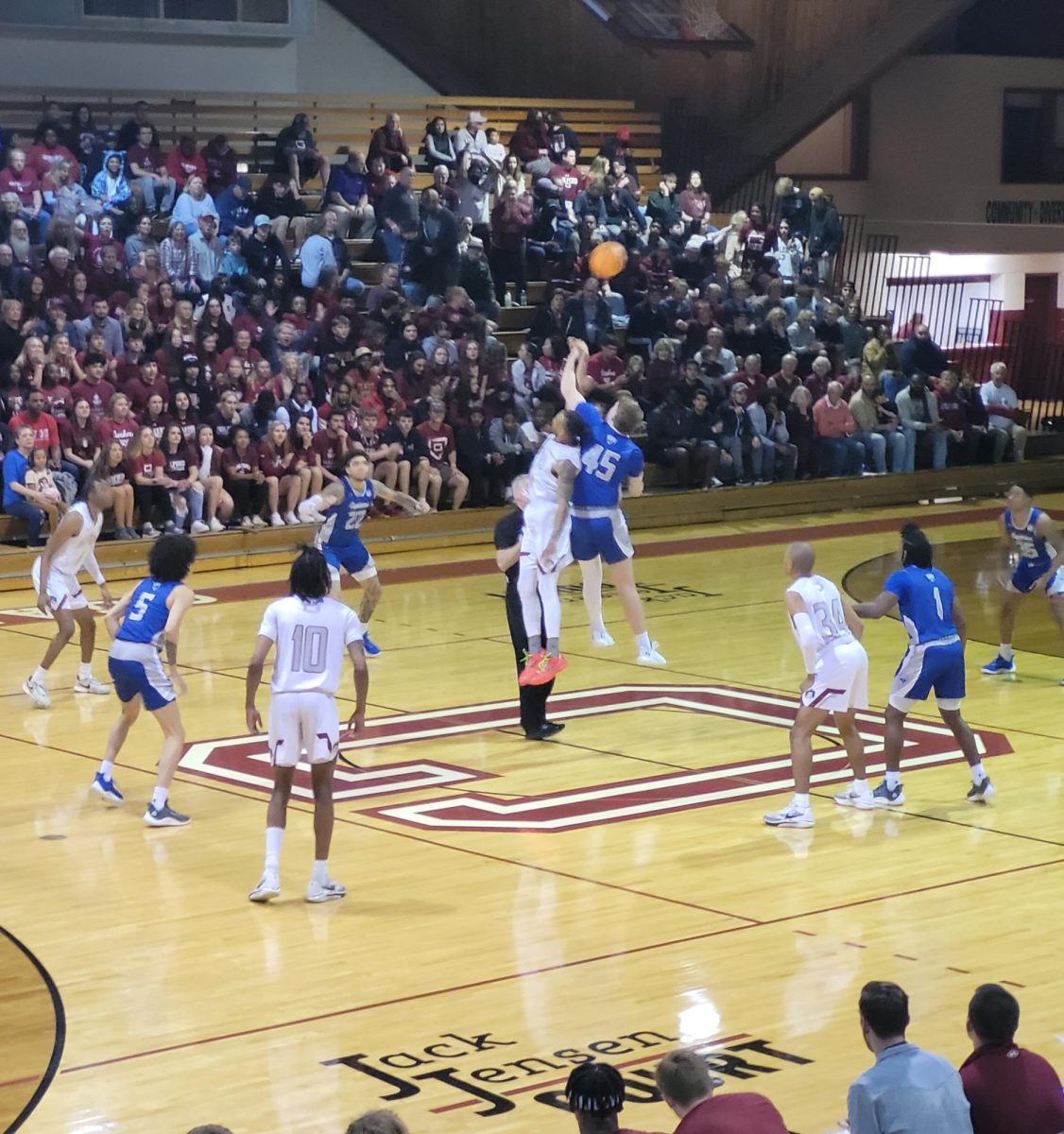An epidemic has been sweeping college athletics everywhere, and I’ll give you a hint: it isn’t school spirit.
If you guessed graduation and retention rates, then you would be only half right. The other half of the problem deals with a more specific group of athletes.
“Look at the numbers,” said Director of Diversity Training and Education Jorge Zeballos. “It’s very clear that the group that struggles the most to stay and graduate are black males.
“Within those numbers are black male athletes, which are a large percent of black men on campus.”
In 2011, a study conducted by the National Center for Education Statistics found that approximately 37.1 percent of college-enrolled students were black. Out of that percent, there was a higher rate of women enrolled than men by a considerable margin.
Black men who play collegiate sports widen that margin.
In a study conducted by the Center for the Study of Race and Equity in Education found that 50 percent of black male athletes graduate in six years compared to 67 percent of other male ethnicities in Division I athletics.
Also, the study showed that black males are criminally underrepresented in college, yet they make up nearly 60 percent of D-I student-athletes.
After looking at the statistics from much larger institutes than Guilford, one question comes to mind: is Guilford any better?
On paper, Guilford is considerably better than the national average, but only because of an assortment of specific factors.
“I can tell you for sure that we are okay,” said President of Guilford College and Professor of Political Science Kent Chabotar. “We have a critical mass of African-Americans and are one of the more diverse schools in the state, second only to UNC-Greensboro.”
On top of that, student-athletes at the D-III level are not granted athletic scholarships, and D-III athletic departments do not have the amount of revenue that D-I athletic programs receive.
At Guilford, Black students make up 14 percent of the population, a six-percent jump from 2007.
From that increase, 57 percent were black women, nearly a 10 percent increase.
Now with that information, think about how many black male student-athletes you know who play or have played a varsity sport at Guilford.
Exactly.
According to data compiled by the Retention Group on campus, 55 percent of Black students depart Guilford, with a high percentage of those students being black male athletes.
Although all athletic teams on campus have dealt with this issue, one of the hardest hit is the football program. At 66 percent, the football program is faced with higher participants, although blame cannot be put solely on their shoulders.
Why is this happening?
Senior football captain Faris El-Ali said the majority of students of color Guilford admits are athletes.
“Many (athletes) are from marginalized high schools that did not prepare them for Guilford,” said El-Ali. “After we admit them, they are not prepared for the rigors of academics, and we do not catch them up properly.”
This failure of communication between administration and students is only a cog in the machine of failure for men of color on campus.
“I think a black student-athlete would leave because of money issues, getting bored on campus, not fitting in or maybe family issues back home,” said sophomore football player Marcus Hicks.
Hicks’s reasoning presents issues much larger than athletics, an issue senior Tony Marsh understands well.
“Black athletes may feel like the numbers of opportunities that are presented to them are not equal to the number that is presented to someone who is not a minority,” said Marsh.
“Out of place” could be the phrase used to describe the black male student-athlete experience at Guilford. Attending a college this expensive and, coupled with the low representation of people of color on campus, can create an atmosphere that can scare students away.
Assistant track and field coach Pierre Cadore ‘03 knows the out of place feeling well. Cadore transferred from Guilford for a year only to transfer back and complete his degree as a Quaker.
“It was a cultural shock to me,” said Cadore. “But I transferred back because I realized that the education and what I learned at Guilford put me above my peers.
“In time, I came to appreciate what Guilford offered me.”
The appreciation Cadore mentioned goes beyond the educational sense. He offered advice to every black student.
“At times you may feel out of your comfort level, and at times, it feels like a culture shock,” said Cadore. “Yet, in order as a person to grow, you need to feel a bit of uncomfortable.”







Pierre CAdore • Jun 29, 2014 at 9:52 am
Great piece CJ. Keep up the good work !
ZMII • Apr 6, 2014 at 12:22 pm
CJ, VERY well written piece. It’s interesting to hear from the horses mouth why an African-American student would transfer only to then transfer back, but the reality of culture shock compared to the glaring realization that Guilford places you tiers above the competition is sobering.
Maybe a support group for the first-years (both student and student-athletes) would allow them to prepare for influx of Guilford curriculum in a more appropriate manner and thus cause them not to experience that “fish out of water” effect. But, at least there is discourse about the issue and that’s what GREAT writing is all about. Way to go CJ and Guilfordian Sports.